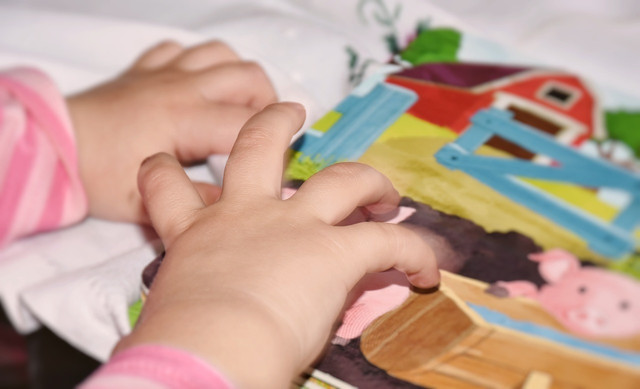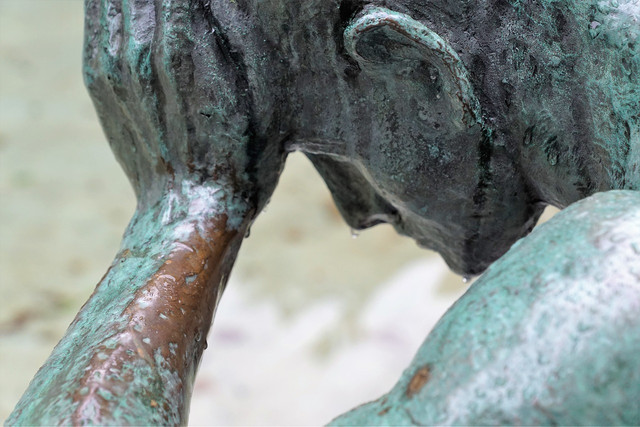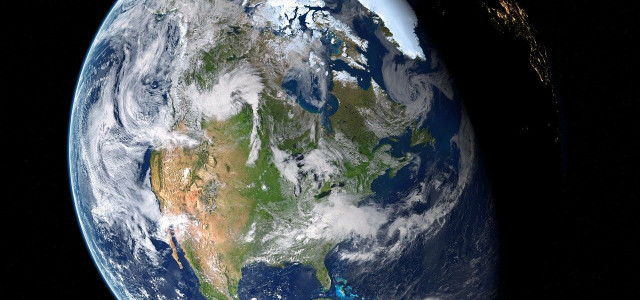Could not having children save the planet? We explore this question, along with “What is anti-natalism?” — here are the environmental and ethical reasons why more people are choosing to become anti-natalists.
A seemingly absurd lawsuit recently lead more people to ask “What is anti-natalism?”: In February 2019, Raphael Samuel declared he would be filing a lawsuit of unusual nature. He wanted to sue his parents for creating him. “It was not our decision to be born,” he said, “human existence is totally pointless.” Samuel’s lawsuit drew fresh attention to the ethical stance referred to as anti-natalism.
What Is Anti-Natalism, Exactly?

(Foto: CC0 / Pixabay / PublicDomainPictures)
In ethics, most actions are assigned a value of positive or negative in accordance with what humans “ought” to do. While not all people will agree on universal definitions of what actions should be labeled as ethical or unethical, there are many well-founded standards based on rights, obligations, and the benefit to society.
As a branch of ethics, anti-natalism is an umbrella term for a spectrum of thought. Each sub-branch of this spectrum agrees that the ethical value of the act of procreation is negative and aims to explore the consequences of bringing children into the world.
This philosophy can produce quite a visceral reaction in many people as it seems to directly contradict our most basic primal instincts. It is also highly controversial due to its inherent pessimism towards human existence.
While there’s a lot of discussion to be heard around this topic, the part of this spectrum that we’ll be exploring here, specifically, are the ecological motivations for anti-natalism.
What Are the Ecological Motivations for Anti-Natalism?



(Foto: CC0 / Pixabay / RitaE)
To understand the ecological motivations for anti-natalism, you first need to understand how it differs from voluntary childlessness: There has been a continued decrease in childbirth rates globally in the last 50 years, which can be attributed to a variety of reasons, none of which are directly linked to anti-natalism as a movement. These include, but are not limited to:
- Child mortality has decreased.
- Child-rearing costs are rising.
- Declining enmeshment of organized religion with everyday life of non-believers.
- Increased availability of contraceptives.
- Increased availability of education for women.
- More people are living in urban areas in shared living later on in their lives.
- Parenting can be a lifestyle or career impediment.
- Survival and family is less dependent on blood relation.
- Women have more power in the workplace and are no longer confined to the home.
While anti-natalism may take some of these points into consideration, none of these reasons are primary factors in adopting an ecological anti-natalist stance. Naturally, ecological anti-natalist ideas are rooted in concern for the environment and a concern for those who will have to live in it.
What Is Ecological Anti-Natalism?



(Foto: CC0 / Pixabay / eak_kkk)
A good starting point is the rise of veganism. Its increasing popularity means that more and more people are exposed to its principles in their day-to-day lives, whether they subscribe to it or not. Veganism means, as many people know, to abstain from animal products, and while everyone has their own reasons for taking up a vegan lifestyle, the aim is essentially to do as little harm to living beings as possible.
Ecological anti-natalism can be understood as a progression of this philosophy. Ecological anti-natalists assert that humans, just by nature of existing, do harm to other living things, no matter how hard they try not to.
Researchers at Lund University in Sweden found that having one fewer child per family can save “an average of 58.6 tonnes of CO2-equivalent emission per year.” For comparison, living without a car saves about 2.4 tonnes of CO2 equivalent per year. Think: how many beings suffer because of human pollution, how much wildlife we displace to make room for our own homes, or even just how many ants you must have accidentally stood on without realizing. Almost all of the 15 most endangered animals in America are endangered because of humanity.
While these acts may not be carried out intentionally or even consciously, anti-natalists believe our species to be one of the most destructive on the planet because of them. Anti-natalists see bringing another life into the world as a way to extend the harm done by humans unnecessarily.
Anti-Natalism for Humanity



(Foto: CC0 / Pixabay / photosforyou)
Since anti-natalists understand human action as the primary cause of environmental degradation, it follows that they’re not overly optimistic about the future of the planet while humans continue to dominate it. The fatalist undertones to this philosophy fuel an even more pessimistic view that an individual can affect no real change on their own to counter climate disaster.
As things stand, we have about 8 years to turn around the climate crisis. Our population is growing at a rapidly increasing rate, meaning we need to use more and more of the earth’s finite resources.
Collectively, we are creating an untenable living situation that is making our own and our fellow animals’ quality of life worse. If you’re curious about this, learn how you can stand up to climate change denial as well as how to combat climate change actively.
Also interesting: Deep Ecology — Principles, Definition and Main Criticisms
The Ethical Value of Procreation in Anti-Natalism
With environmental disasters, like hurricanes or typhoons, seeming to increase in magnitude every year, endangering the lives of more and more people, many anti-natalists can’t imagine bringing future generations of people into a world where they will undoubtedly suffer.
Even if it could be guaranteed that your child wouldn’t personally suffer, there is no shielding them from the suffering of others who are living in a world that will continue to become increasingly uninhabitable.
Some philosophical thinkers argue that suffering is completely unavoidable and always valued as ethically negative. David Benetar is the leading thinker in this area, and his thoughts are often used in anti-natalist discussions. His argument for the inherent harm of existence is frequently referred to as evidence of the negative ethical value of procreation. It goes like this:
- There is an asymmetry between pleasure and pain.
- The presence of pleasure is good; the absence of it is not bad.
- The presence of pain is bad, and the absence of it is good.
- Therefore, we should always try to avoid pain, not necessarily in the pursuit of pleasure in its place, but rather just to maximize the net good, even if there is no one there to experience it.
In Conclusion
From an environmentalist standpoint, there is an inherent paradox in anti-natalist thought. Those who wish to diminish the human impact on the earth via anti-natalism sacrifice the possibility of passing on their philosophy to the next generation. Adoption is one possible ethical work-around for this. However, the fact remains that there are many socio-economic factors that play a role in people not wanting to have children at all.
Finally, it must be noted in light of recent events that having children is an extremely private and personal decision. If you do have children, it’s most important to make sure you’re bringing them into this world consciously when you’re ready for them emotionally and financially, and into a stable home.
Unfortunately, the right to do this is not extended to all people across the world and has been recently taken away from many people across the United States. Please bear this in mind when talking about anti-natalism as a form of environmental activism, as not everyone has the luxury to choose.
Read More:
- What Is Ecological Succession? Definition, Examples and Types
- How to Beat a Bad Mood
- Ethical Underwear: 6 Sustainable Brands You Can Get Behind
Do you like this post?









